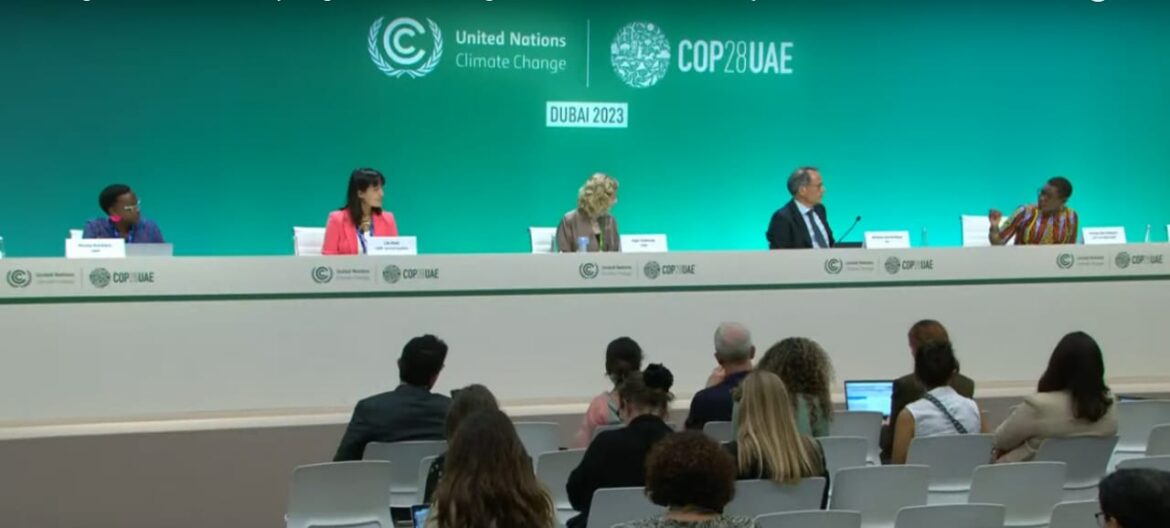Today, the United Nations Environmental Program (UNEP) has launched the Global Cooling Pledge, which aims to reduce cooling-related emissions across all sectors by at least 68% globally by 2050.
The Global Cooling Pledge is considered the world’s first collective focus on energy emissions from the cooling sector, with over 60 countries signing on the pledge and joining efforts working to reduce their cooling-related emissions by at least 68% compared to 2022 levels, as part of the Paris Agreement’s main goal of limiting global average temperature rise to 1.5°C.
Without sustainable practices, the demand for cooling equipment will skyrocket, and is expected to triple by 2050, which will double the electricity consumption numbers of today.
Currently, global cooling consumption accounts for about 20% of electricity use.
Presenting the key findings of the Global Cooling Watch report today at COP28, Lily Riahi, global coordinator of the UNEP-led Cool Coalition, said sustainable cooling practices are needed immediately, and that includes safely transitioning to environmentally friendly cooling-related practices, given the importance of cooling in our lives.
We need cooling for food, health and prosperity, she said, adding that cooling is much more than air conditioning.
“Currently, 12 per cent of food produced globally is lost because of the lack of sustainable food chain that includes sustainable cooling,” she pointed out.
Riahi added that cooling is also crucial to our health, and if we improve universal vaccine access, we can prevent 1.5 million deaths annually.
She shared that cooling is also about protecting communities from extreme heat and working in safe and healthy environments.
With collaboration with more than 50 global experts, the UNEP’s Global Cooling Watch report found that the housing sector accounts for 7% of emissions globally, and this will double by 2050 if we do nothing.
Riahi said during a press conference today at COP28 that the report comes at a pivotal moment as the world sees alarming emissions records.
“How to keep cool while cutting emissions?” is a question that many countries, regions and cities are asking, she said.
One of the first findings in the report is that we are seeing a rising demand for power-hungry cooling equipment, she noted, adding that cooling is a double burden when it comes to climate change, with inefficient use of air conditioning consuming vast amounts of electricity and producing more greenhouse gas emissions, especially in poorly designed buildings.
But, Riahi said, if we use passive cooling measures to reduce cooling load, like using reflective surfaces, ventilation, insulation, and planting or preserving more trees, this will lead to roughly a 24 % reduction in cooling load.
The use of energy-efficient technology practices in cooling also needs to increase.
The report also finds that 73 % of this emission reduction potential is within G20 countries.
“These measures, among others, can deliver up to 60 % in emission reduction by 2050, through cutting CO2 emissions by 3.8 billion tons,” Riahi stated, adding that we need to fully decarbonise electricity generation by 2050 to reach net zero emissions.
According to the report, the benefits of this transition are significant, with electricity savings worth about 17 trillion dollars annually in 2050 for consumers.
There will also be a reduction in peak electricity load globally by 1.5 to 2 terabytes by 2050, avoiding between four and five billion dollars of investment in new power generation.
We need deeper efforts to make this a reality, Riahi explained, especially in three key action areas, including policies to incorporate passive cooling into buildings’ energy codes, as well as nature-based approaches in urban planning, and faster phase-down of refrigerants.
“We need national cooling action plans, and regulations at a national level that enable a multi-stakeholder approach,” she said.
Finally, it was highlighted that finance instruments and business models proven to tackle the issue of sustainable cooling, need to scale, which would also save trillions of dollars.
The Global Cooling Pledge has been spearheaded by the COP28 President, HE Sultan Al-Jaber, based on the UNEP’s report results and recommendations.
Speaking on behalf of cities for the cooling-related emissions, Yvonne Aki-Sawyerr, Mayor of Sierra Leone’s City of FreeTown, said that the question of cooling is critical to cities all over the world.
“When looking at the pledge, we must contextualize it,” she said, adding that as pledges are made by national governments, national governments must also sign up to the challenges and include city actions in their NDCs.
“If we do that, our chances of a cooling pledge that is not only signed, but implemented as well will be higher,” she stated.
From the city perspective, Aki-Sawyerr highlighted the city of Copenhagen, which brought regulations that ensure cooling installed in buildings results in less emissions. This comes with regulations for sustainable architecture design, which was highlighted as an important part of the path to lowering harmful emissions.




